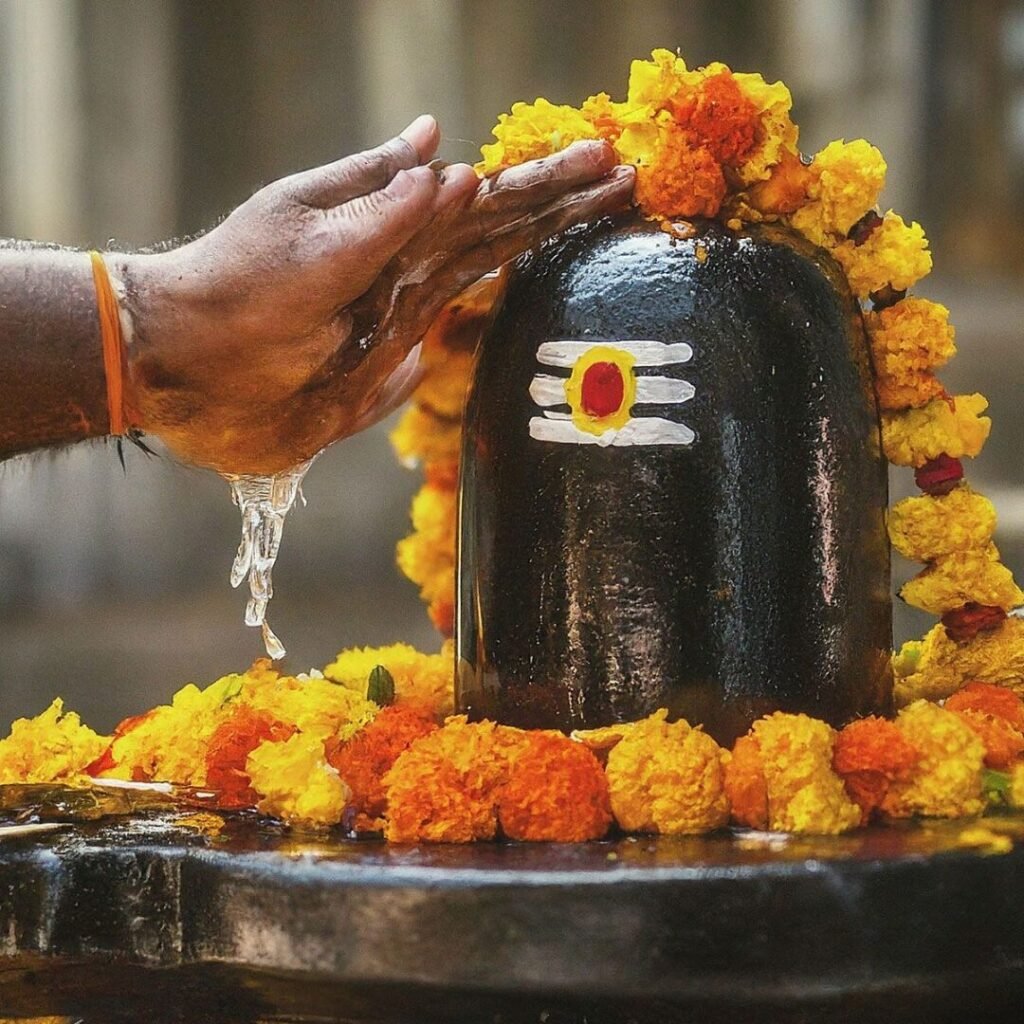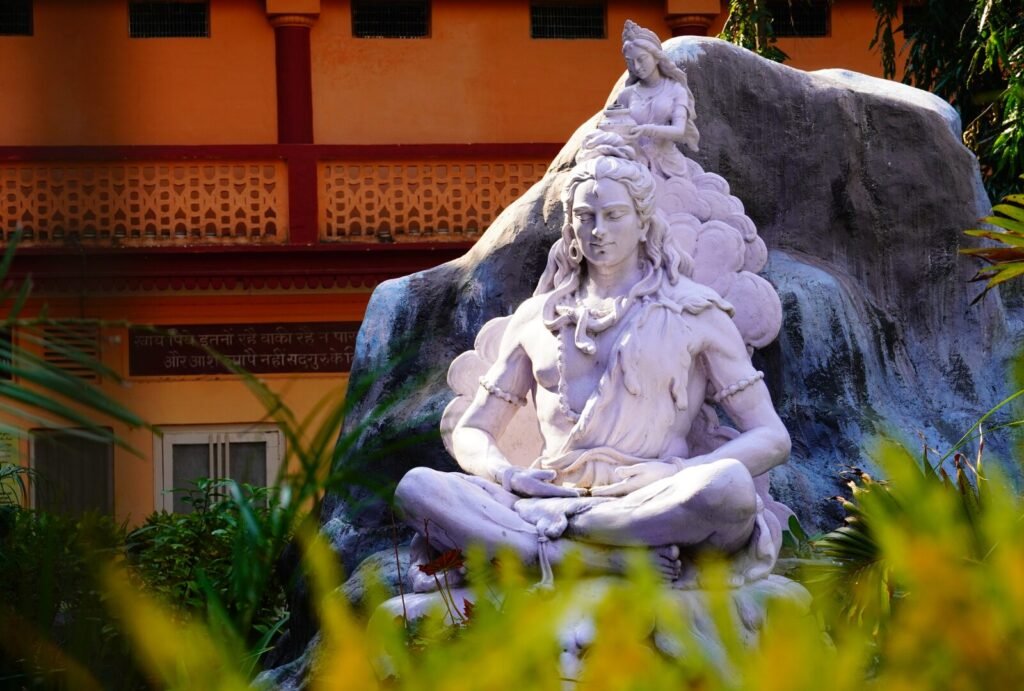What Is So Significant About Mahashivratri On Women?
Women use Maha Shivratri to reflect on the balance of masculine and feminine energies within themselves and manifest energies in their thoughts, actions, and relationships, aiming for a harmonious integration that promotes overall well-being.
Shivratri emphasises the strength found in nurturing qualities associated with femininity. They value the power of compassion, care, and emotional intelligence, seeing these qualities as essential components of their strength and contribution to personal and collective development.
Maha Shivratri encourages women to embrace both their masculine and feminine qualities, recognising that true well-being requires a balance of these energies. It promotes an inclusive perspective that values the unique strengths derived from both aspects, encouraging a holistic approach to personal growth.
"
In this article will discuss the Significance Of Shivratri For Women.
- Table of Content
- Significance Of Shivratri For Women.
- Final Thoughts
Significance Of Shivratri For Women.
1. Symbolism of the Shiva-Parvati Union
Lord Shiva and Goddess Parvati’s union represents the convergence of two divine energies, each with unique characteristics. Shiva, the masculine principle, is frequently associated with stillness, transcendence, and destruction, whereas Parvati, the feminine principle, is linked to creativity, nurturing, and transformation. Their union represents the integration of these complementary forces, resulting in a complete and harmonious whole.
Lord Shiva and Goddess Parvati are frequently depicted in perfect harmony, with Shiva’s attributes complementing Parvati’s qualities. Women interpret this imagery as a metaphor for the need to balance masculine and feminine aspects of themselves.
Some depictions show Shiva and Parvati in the Ardhanarishvara form, in which one half of the deity is Shiva and the other is Parvati. This imagery visually emphasises the idea of unity and interconnectedness. Women view the Ardhanarishvara form as a symbol of the inseparability of masculine and feminine energies, emphasising their innate connection.
2. Symbolism of Ardhanarishvara form
The Ardhanarishvara form of Lord Shiva represents the union of male (Shiva) and female (Shakti or Parvati) aspects into a single divine entity. Women find inspiration in this symbolism, recognising that each person possesses a harmonious balance of masculine and feminine qualities.
The Ardhanarishvara form represents wholeness and completion. Women consider this symbolism, realising that accepting both masculine and feminine qualities within themselves contributes to a sense of overall well-being.
The symbolism encourages women to embrace all aspects of themselves, including strengths traditionally associated with both genders. It inspires self-integration, instilling a sense of acceptance and empowerment through the recognition and balancing of various aspects of one’s personality.
3. Symbolic Form Of Sacred Rituals And Contemplation
Women actively participate in Maha Shivratri rituals such as fasting, chanting prayers, and going to temples. These rituals offer a structured framework for contemplation and self-reflection, encouraging a stronger connection to spirituality and personal growth.
3.1. Fasting
Many women fast during Maha Shivratri. Abstaining from food or specific indulgences is both a physical and symbolic practice. It represents discipline, self-control, and purification, allowing women to direct their energies towards spiritual pursuits.
3.2. Chanting Prayers
Women chant prayers and hymns dedicated to Lord Shiva. The rhythmic recitation of sacred verses fosters a meditative atmosphere, allowing individuals to connect with the divine on a deeper level. Chanting is a devotional practice that expresses reverence and gratitude.
3.3. Visiting Temples
Visiting temples dedicated to Lord Shiva is an important ritual during Maha Shivratri. Women gather in these sacred spaces to participate in special ceremonies, pray, and watch priests perform elaborate rituals. The temple visit becomes an immersive experience that fosters a sense of community and shared devotion.
3.4. Structured Contemplation
The rituals associated with Maha Shivratri offer a structured framework for reflection. Women achieve moments of stillness and introspection by fasting, praying, and visiting temples. This contemplative space promotes self-reflection, personal growth, and reassessing one’s spiritual path.
3.5. Symbolic Actions
Rituals frequently include symbolic actions that convey deeper meaning. For example, offering bilva leaves, sacred water (abhishek), or lighting lamps can represent self-purification and holy offerings. These symbolic acts serve as opportunities to reflect on spiritual values and principles.



4. Honours The Divine Feminine Principle (Shakti)
Maha Shivratri is especially significant for acknowledging the divine feminine principle, which is often personified as Shakti or Parvati. Women see this celebration as an opportunity to acknowledge and honour the feminine’s nurturing, creative, and powerful aspects.
Women use Maha Shivratri to celebrate their natural nurturing and creative abilities. The festival becomes an opportunity to embrace and express these energies, instilling a sense of pride in embodying Shakti. This celebration transcends societal roles and expectations, recognising the divine essence within each woman.
During Maha Shivratri, women strengthen their bond with Shakti through prayers, rituals, and meditation. This connection is both external and internal, as women discover and cultivate their own divine feminine qualities, recognising them as sources of strength and wisdom.
5. Instills Pride In Femininity
The recognition of Shakti encourages women to be proud of their femininity. It helps to break down stereotypes and societal norms, allowing women to embrace and celebrate their unique characteristics without feeling constrained by traditional gender roles. Maha Shivratri becomes an opportunity to promote a positive and empowered sense of femininity.
6. Connects Humanity With The Divine
Maha Shivratri celebrations foster a strong sense of connection among women, not only with their immediate surroundings but also with humanity. This shared celebration becomes a unifying force, fostering a collective consciousness that transcends cultural, social, and geographical boundaries..
7. Symbolic Of Love And Devotion
Maha Shivratri inspires women to show their love and devotion through acts of kindness. These actions, whether they involve helping others, demonstrating compassion, or contributing to charitable causes, embody the spirit of selfless love and service that Lord Shiva taught.
Women show their love for their families by participating in the Maha Shivratri celebrations. This could include holding group prayers, participating in rituals, or creating a festive atmosphere at home. The celebration becomes a unifying experience, fostering familial bonds through shared devotion.
The festival emphasises the unity that can be found within diversity. Women from various backgrounds, cultures, and traditions gather to celebrate Maha Shivratri, emphasising that despite differences, there is a common thread of spirituality that connects people.
8. Instills Devotion And Spiritual Connection
Maha Shivratri is a significant Hindu festival honouring Lord Shiva, the destroyer and transformer of the Hindu Trinity. Women, like many other devotees, approach this festival with deep devotion. This devotion is manifested through sincere prayers, heartfelt hymns, and genuine respect for Lord Shiva.
Women actively participate in various spiritual practices during Maha Shivratri. This includes rituals like bathing the Shiva Lingam (a symbol of Lord Shiva), offering fruits, flowers, and other sacred items, and reciting Vedic chants and prayers. These practices are thought to cleanse the mind, body, and soul, creating an environment conducive to spiritual connection.
The festival includes extensive periods of prayer and meditation. Women often spend the night in vigil, chanting Shiva mantras and reading scriptures about Lord Shiva. Individuals use focused meditation to quiet their minds, achieve inner peace, and form a deeper connection with the divine.
9. Develops Inner Strength and Promotes Empowerment
Lord Shiva’s stories frequently involve confronting and overcoming major challenges. Shiva’s resilience is an example of how to deal with external threats or navigate complex situations. During Maha Shivratri, women reflect on their own challenges and adversities, drawing inspiration from Shiva’s ability to persevere and emerge stronger.
Lord Shiva’s unwavering determination to achieve his goals is another aspect that appeals to women. Maha Shivratri becomes a time for self-reflection, encouraging women to identify and pursue their own aspirations and goals with the same level of dedication and determination.
Maha Shivratri reminds women to tap into their inner strength and resilience. It’s a time to reflect and recognise one’s own inherent power, encouraging a better understanding of one’s abilities and cultivating a sense of self-empowerment.
Lord Shiva is frequently associated with overcoming obstacles, as evidenced by stories such as the churning of the ocean (Samudra Manthan) and the destruction of ignorance (represented by the demon Maha Shivaratri). Women use this symbolism to reflect on their ability to overcome challenges and obstacles in their own lives, discovering strength in the face of adversity.
Final Thoughts
Maha Shivratri is a time to reflect on the interconnectedness of all beings. Women consider the possibility that their prayers and devotion are part of a larger cosmic dance, contributing to the complex web of existence. This reflection fosters a sense of responsibility and empathy for the overall human experience.
Maha Shivratri transcends individual or personal celebrations, emphasising a connection to something greater—the larger cosmic order or the divine. Women who attend the festivities understand that their devotion and prayers add to a collective energy that transcends individual boundaries.
Subscribe to new post
The One Liner
Useful Links
Order Related Queries
Useful Links
Order Related Queries




